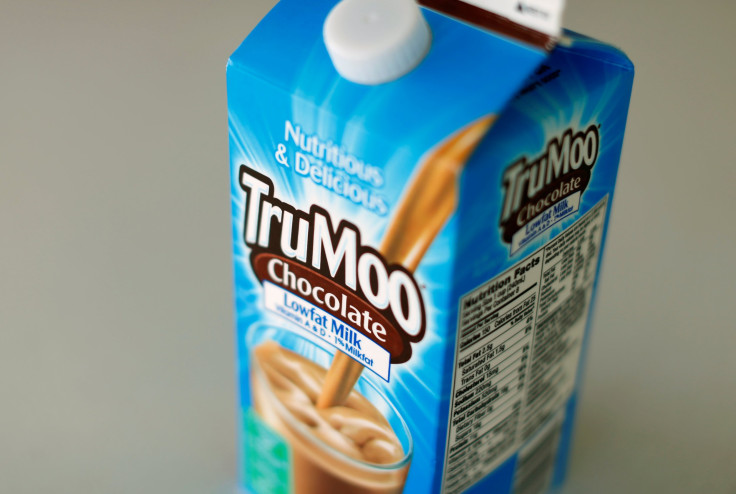Chocolate Milk From Brown Cows? 7 Percent Of Americans Think So

A new study conducted by the Innovation Center for U.S. Dairy (ICUSD) — an advocacy group for people that work in the dairy industry — revealed Thursday that some Americans believe brown cows produce chocolate milk. The study was conducted to coincide with National Dairy Month, which is celebrated in June.
The study came from an April survey that calculated 7 percent of Americans being misinformed chocolate milk's origins. A total of 1000 participants supplied answers within the survey, according to Food & Wine.
Read: How To Treat Depression: Sadness, Anxiety, Helplessness Lowered With Dairy Diet Of Yogurt, Milk
While 7 percent is a relatively low figure, the survey has garnered attention from several major news outlets and the general public — perhaps because any number of adults erroneously believing the misconception comes as a surprise. Food & Wine notes that if you do the math, an estimated 16.4 million people in the U.S. would firmly stand by the popular myth.
For those that are unaware, chocolate milk — or milk in general — will and always has come from white cow's milk, but the color of the cow has no bearing on the color of the milk. Flavoring and sweeteners are added after the fact to boost flavor, and the color of chocolate milk comes courtesy of cocoa beans.
To further perpetuate the theory, if brown cows did produce chocolate milk, what would that mean for other dairy products? While it would surely make it easier to create chocolate ice cream, we'd also have the option of chocolate cheese and other chocolate-dairy products the world could do without.
Read: Obesity In America: We're Eating A Lot More Of Almost Everything — Except Beef And Milk
The survey also touched on other types of food. However, the researchers noticed that many of the testers weren't knowledgeable on the origins and processing practices for the foods they regularly consumed.
"All informants recalled the names of common foods in raw form and most knew [that] foods were grown on farms or in gardens," the researchers said, according to The Washington Post. "They did not, however, possess schema necessary to articulate an understanding of post-production activities nor the agricultural crop origin of common foods."
Cecily Upton, co-founder of FoodCorps, believed this lack of knowledge stems from an "exposure issue."
"At the end of the day, it’s an exposure issue," she said, according to The Washington Post. "Right now, we’re conditioned to think that if you need food, you go to the store. Nothing in our educational framework teaches kids where food comes from before that point."
Chocolate milk isn't the only food origin story that stumps Americans nationwide. While the study may have shown that people aren't entirely sure where hamburgers come from (it's also a cow product, by the way), many Americans also don't know the origins other popular things that they may consume such as bubble gum.
The release of ICUSD's study is crucial in that it will help to clarify things for those that were initially clueless or still are as to the origins of chocolate milk.
© Copyright IBTimes 2025. All rights reserved.






















